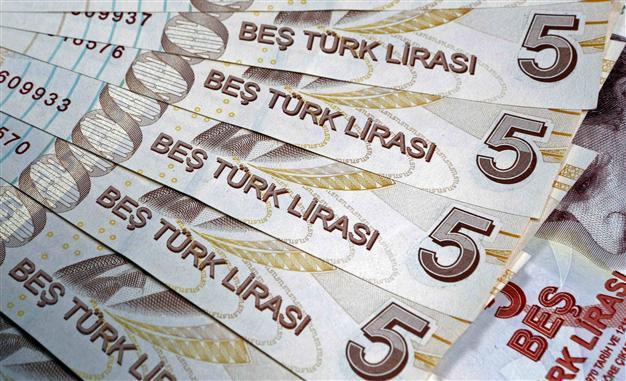Turkey holds main interest rates steady as lira firms
ISTANBUL - Agence France-Presse

Turkish Central Bank said the overnight lending rate was kept at 12.0 percent, while the the borrowing and one-week repo rate were left at 8.0 percent and 10.0 percent. REUTERS Photo
Turkey's central bank held its key interest rates steady on Tuesday after pressure on the embattled lira relented in response to aggressive monetary tightening last month.
In a statement posted on its website, the bank said the overnight lending rate was kept at 12.0 percent, while the the borrowing and one-week repo rate were left at 8.0 percent and 10.0 percent.
Analysts had said that the bank was unlikely to raise rates further after the emergency increases -- in defiance of the government -- in late January to fight a run on the currency, which lost 30 percent of its value in two months.
Last month the central bank raised the overnight rate from 7.75 percent to 12.0 percent, and the one-week repurchase rate from 4.5 percent to 10.0 percent.
The fall of the lira was rooted in a vast political crisis sparked by a corruption scandal that ensnared key government allies in mid-December and the US Federal Reserve's decision to further cut its stimulus, causing investment to flow out of many emerging markets.
But the pressure has relented after the central bank's bold action, with the currency strengthening from 2.33 to the dollar to about 2.18.
The lira rallied shortly after today's announcement and was quoted at 2.1797 to the dollar and 2.9933 to the euro.
At Capital Economics in London, emerging markets economist, William Jackson said monetary conditions likely to remain tight as policy makers "didn't use the recent strengthening of the lira as an opportunity to reverse some of last month's aggressive hikes in interest rates".
"Given the recent volatility in the financial markets, it's tricky to predict future moves in Turkish interest rates," he said.
"But we think the country's large current account deficit (at 8.0 percent of GDP) and high level of short-term external debt mean it's more likely than not that the central bank will need to maintain tight monetary conditions."
At Finansbank, economist Deniz Cicek said that the central bank's "no change in rates" matched market consensus but added that last month's monetary tightening was not strong enough.
"We consider the recent monetary tightening as essential to alleviate depreciation pressures on the Turkish lira..." he said.
"Nevertheless, we doubt that it was strong enough to overcome currency weaknesses altogether, particularly when the risk perceptions deteriorate due to domestic or external developments," he added.
"Therefore... we still see scope for further interest rate hikes in the forthcoming months."
